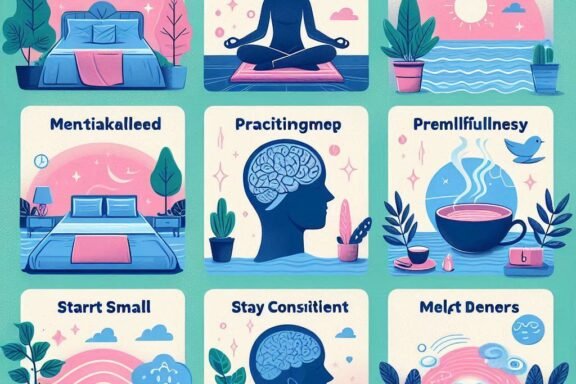In today’s fast-paced world, finding ways to manage stress, improve mental clarity, and boost emotional well-being is essential. While there are many strategies for improving mental health, one simple yet highly effective method is journaling. Journaling allows you to express your thoughts and emotions, gain perspective on your challenges, and develop self-awareness—all of which can significantly enhance your mental well-being. In this post, we’ll explore how journaling can improve your mental health and provide tips to get started.
1. Journaling Helps You Process Your Emotions
One of the biggest challenges we face when dealing with difficult emotions is knowing how to process them. Often, emotions can feel overwhelming, especially when they’re left unaddressed. Journaling provides a safe space for you to express these emotions without fear of judgment. When you write about your feelings, you gain clarity about what’s really bothering you, which can reduce emotional intensity.
How Journaling Helps with Emotional Processing:
- Writing about emotions allows you to work through them instead of bottling them up.
- Putting feelings into words helps release pent-up energy, reducing feelings of anxiety or sadness.
- Journaling gives you an opportunity to reflect on what triggered certain emotions, allowing you to understand and process them more effectively.
Tip: Try free writing about how you feel each day. Don’t worry about grammar or structure; just let the words flow. The goal is to express your emotions honestly.
2. Journaling Provides a Creative Outlet
Creativity is a natural way to release stress and boost mood. Journaling offers a unique creative outlet that helps you channel your thoughts in positive ways. Whether you use your journal for writing stories, sketching, or making to-do lists, the act of creating something on paper can bring a sense of accomplishment and satisfaction.
How Journaling Fuels Creativity:
- Writing or doodling helps you tap into your creative side, which can boost your mood.
- Journaling allows you to experiment with different forms of expression, which can be both fun and therapeutic.
- It can serve as a creative escape, helping you shift focus from stress to something more enjoyable.
Tip: Use your journal not only for writing but also for brainstorming, drawing, or mind-mapping. Creative expression can help you unwind and recharge.
3. Journaling Enhances Self-Awareness and Clarity
When you journal, you are essentially having a conversation with yourself. This process allows you to gain greater insight into your thoughts, patterns, and behaviors. The more you journal, the better you understand yourself. Journaling fosters self-reflection, which is crucial for improving mental health. By reviewing your past entries, you can recognize patterns in your emotions and reactions, which can help you make positive changes in your life.
How Journaling Increases Self-Awareness:
- It encourages you to explore your thoughts and feelings, which enhances emotional intelligence.
- Journaling helps you track personal growth and see how your mindset has evolved over time.
- It allows you to identify negative patterns, like repetitive worry or self-doubt, so you can address them.
Tip: At the end of each week, review your journal entries. Reflect on any patterns you’ve noticed and think about how you can shift your mindset or habits.
4. Journaling Reduces Stress and Anxiety
Stress is an inevitable part of life, but how we handle it can make all the difference. Journaling has been proven to lower stress levels by providing an outlet for releasing worries and anxious thoughts. When you write about stressful situations, you are able to view them from a different perspective, often leading to a sense of relief.
How Journaling Reduces Stress and Anxiety:
- Writing down your worries can reduce their intensity, as it provides an external release for your anxious thoughts.
- Journaling helps you problem-solve by allowing you to work through stressful situations logically.
- Studies have shown that expressive writing can decrease levels of cortisol, the hormone associated with stress.

Tip: If you’re feeling stressed, try writing a list of things that are causing you anxiety. Then, write down potential solutions or ways you can cope. This can help you feel more in control of the situation.
5. Journaling Boosts Your Mood and Gratitude
Gratitude is a powerful emotion that can improve overall mental well-being. Journaling is an excellent way to practice gratitude by documenting the positive aspects of your life. When you regularly focus on what you’re thankful for, it helps shift your mindset from negativity to positivity. This simple shift can have a profound effect on your mood.
How Journaling Boosts Mood and Gratitude:
- Writing down things you’re grateful for helps you focus on the positive aspects of life.
- Regularly practicing gratitude has been shown to increase happiness and improve mental health.
- Gratitude journaling can help you see the silver lining even in difficult times, offering comfort and hope.
Tip: Start each day by writing down three things you’re grateful for. They don’t have to be big—small moments of gratitude can make a huge impact on your mood.
6. Journaling Improves Problem-Solving Skills
When you face challenges, journaling can be a helpful tool for brainstorming solutions. Writing down problems allows you to approach them with a clearer, more organized mind. Journaling helps you prioritize issues, break them down into smaller steps, and create a plan of action, which can reduce feelings of overwhelm.
How Journaling Helps with Problem-Solving:
- Writing out problems often makes them seem less intimidating and more manageable.
- Journaling allows you to brainstorm creative solutions, making you feel empowered to take action.
- Documenting your process helps you track your progress and adjust strategies when needed.
Tip: When faced with a problem, write it down in your journal and list potential solutions. This can help you see things from a new angle and take decisive action.
Getting Started with Journaling for Mental Health
If you’re new to journaling, it’s important to approach it with an open mind and no pressure. There’s no right or wrong way to journal, and your practice can evolve over time. Here are some tips to help you get started:
- Start small: Set aside just 5-10 minutes each day for journaling. Consistency is more important than length.
- Be honest: Write about your true feelings and thoughts. This is a private space, so there’s no need to filter yourself.
- Experiment: Try different styles of journaling, such as gratitude journaling, stream-of-consciousness writing, or setting goals.
- Create a routine: Incorporate journaling into your daily routine, whether it’s in the morning, before bed, or during a lunch break.
Conclusion
Journaling is a powerful, accessible tool for improving mental health. By helping you process emotions, reduce stress, and develop greater self-awareness, journaling can have a profound impact on your emotional and mental well-being. Whether you use it to express your feelings, practice gratitude, or brainstorm solutions to problems, journaling offers a safe space to explore your thoughts and enhance your overall well-being. If you haven’t already, start journaling today—it could be the key to a healthier, more balanced mindset.








No Comments